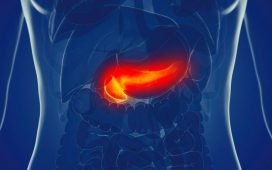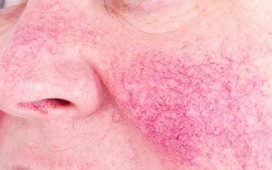Lower mortality seen with lonafarnib monotherapy after 2.2 years compared with no treatment
WEDNESDAY, April 25, 2018 (HealthDay News) — Lonafarnib monotherapy is associated with lower mortality among patients with Hutchinson-Gilford progeria syndrome (HGPS), according to a study published in the April 24 issue of the Journal of the American Medical Association.
Leslie B. Gordon, M.D., Ph.D., from the Hasbro Children’s Hospital in Providence, R.I., and colleagues compared contemporaneous untreated patients with HGPS matched with treated patients by age, sex, and continent of residency. Treatment cohorts included patients from two single-site clinical trials (27 and 36 patients); patients received oral lonafarnib twice daily. Untreated patients originated from a separate natural history study and received no clinical trial medications.
Patients were treated for a median of 2.2 years. The researchers found that the primary cause of death was heart failure (79.4 percent), when identified. One death (3.7 percent) occurred among the 27 patients in the first trial group; among the 27 patients in the matched untreated group, there were nine deaths (33.3 percent). The rate of mortality was lower in association with treatment (hazard ratio, 0.12). In the combined cohort, there were four deaths (6.3 percent) and 17 deaths (27 percent) among the 63 patients in the treated and 63 patients in the matched untreated groups, respectively (hazard ratio, 0.23).
“Among patients with HGPS, lonafarnib monotherapy, compared with no treatment, was associated with a lower mortality rate after 2.2 years of follow-up,” the authors write. “Study interpretation is limited by its observational design.”
Schering Plough/Merck provided the medication used in the two treatment trials.
Abstract/Full Text (subscription or payment may be required)
Editorial (subscription or payment may be required)
Copyright © 2018 HealthDay. All rights reserved.








